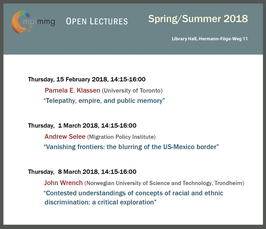"When states come out: transnational movements and the diffusion of LGBT rights in Europe"
Open Lectures Spring/Summer 2018
- Date: May 31, 2018
- Time: 02:15 PM - 04:00 PM (Local Time Germany)
- Speaker: Phillip M. Ayoub (Drexel University, Philadelphia)
- Phillip M. Ayoub is Assistant Professor of Politics at Drexel University. His research bridges insights from international relations and comparative politics, engaging with literature on transnational politics, sexuality and gender, norm diffusion, and the study of social movements. He received the biennial 2013-2014 award for the best dissertation from the European Union Studies Association, as well as the 2014 Kenneth Sherrill Award for the best dissertation in the field of sexuality and politics, and the 2014 award for the best dissertation in the field of human rights from sections of the American Political Science Association. His articles have appeared in Comparative Political Studies, the European Journal of International Relations, Mobilization, the European Political Science Review, the Journal of Human Rights, and Social Movement Studies, among others.
- Location: MPI-MMG, Hermann-Föge-Weg 11, Göttingen
- Room: Library Hall

For more details please contact buethe(at)mmg.mpg.de.
In the last two decades, the LGBT movement has gained momentum that is arguably unprecedented in speed and suddenness when compared to other human rights movements. This talk addresses the recent history of this transnational movement in Europe, focusing on the diffusion of the norms it champions and the overarching question of why, despite similar international pressures, the trajectories of socio-legal recognition for LGBT minorities are so different across states. The talk makes the case that a politics of visibility has engendered the interactions between movements and states that empower marginalized people – mobilizing actors to demand change, influencing the spread of new legal standards, and weaving new ideas of equity into the fabrics of societies. It documents how these transnational processes that connect states (via social, political and movement channels) empower marginalized social groups by moving them to the center of political debate and public recognition and making it possible for them to obtain rights to which they have due claim.